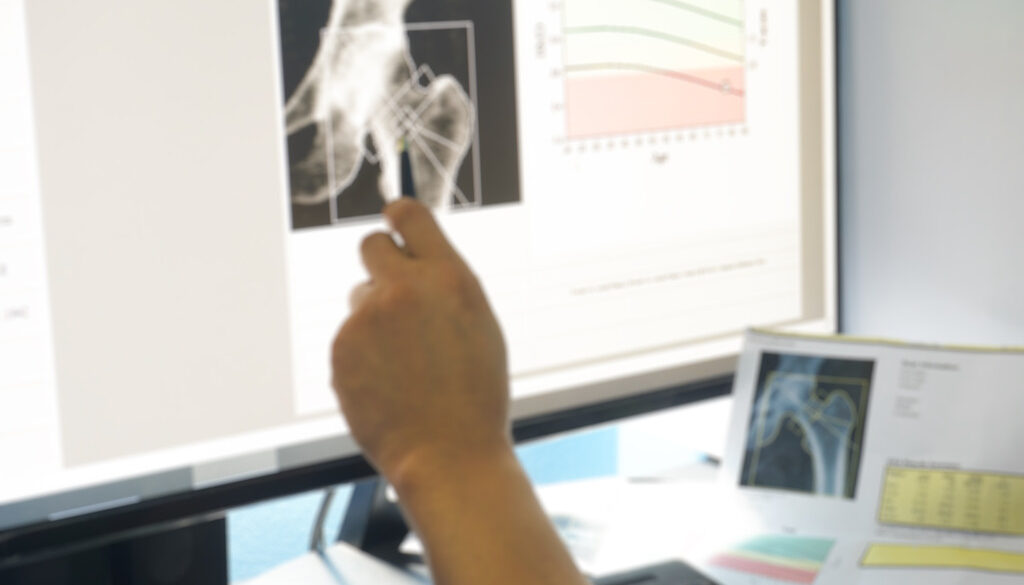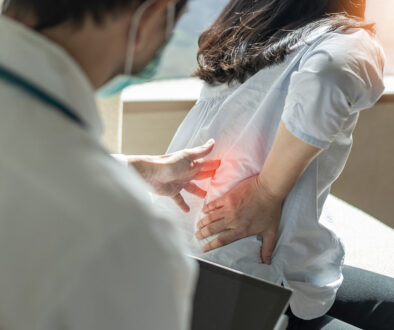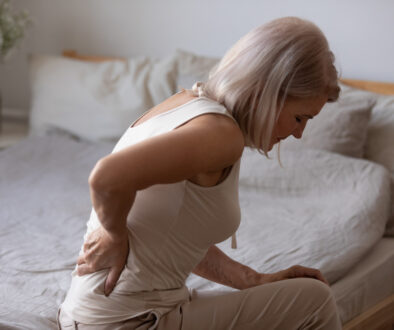How Is a Bone Density Scan Done and Why Would You Need One?
A fall can be painful. But if you have osteoporosis, even a slight tumble can be traumatic.
According to the McGill Journal of Medicine, a little over half of fractures in women and 24 percent of fractures in men are caused by osteoporosis. Often, osteoporosis can be detected through a bone density scan. But what is it and how is a bone density scan done?
Because there may be some confusion surrounding this exam, we will explore what it is, why you would need one and how to prepare for it.
How Is a Bone Density Scan Done?
A bone density scan is a painless exam that uses a low dose of X-rays to measure the amount of calcium and minerals in the bone. This is done by using a device that looks like a mechanical arm. This arm passes over your body as you’re lying on a table or padded platform.
If you need closer examination of bones in your finger, heel or wrist, health care professionals can use a smaller, portable machine.
Is a Bone Density Scan Painful?
No. This is a noninvasive test, and you will not experience any pain.
How Do You Prepare for a Bone Density Test?
The good news is that there is practically no preparation needed for a bone density test. Our internal medicine doctors in Raleigh may tell you to avoid taking a calcium supplement for at least 24 hours before the test.
You should also leave jewelry at home and avoid wearing or carrying metal objects. This also means you should avoid clothes with zippers, buttons and belts. We always suggest wearing loose, comfortable clothing.
While full-body bone density scans are done at outpatient facilities, at Raleigh Adult Medicine, we can perform a bone density test in 15 minutes from the convenience of our office. Typically, the bones we will closely examine include the hip, spine or forearm. However, this may vary depending upon your individual situation.
Why Would You Need a Bone Density Test?
As you get older, your bone density decreases. If we can identify the decrease in your bone mineral density, we can diagnose—and prevent—osteoporosis progression.
We suggest testing for men who are 70 and over. We also recommend that if you are a woman and are 65 or older, to have a bone density scan every two years, depending upon your risk factors for osteoporosis. (More on those risk factors later.)
If you have risk factors for osteoporosis, we may recommend a bone density scan at an earlier age.
What Are the Risk Factors for Osteoporosis?
The risk factors for osteoporosis include:
- Gender – Women are more likely to develop osteoporosis.
- Age – The older you get, the greater your risk for developing osteoporosis. This is why bone density scans are so important as you age.
- Body type – Those who are thin and small-boned are at greater risk.
- Family history – You’re more likely to develop osteoporosis if you have relatives who have had it.
- Hormones – Women who have low estrogen levels—particularly those in menopause—are at greater risk.
- Anorexia – Those with this eating disorder are at higher risk.
- Sedentary lifestyle – Those who do not have a regular exercise routine or those who are not active may develop osteoporosis.
- Cigarettes – Smoking is bad for your health on so many levels. If you smoke or vape, speak with us about ways to help you quit.
- Excessive alcohol – If you drink too much, you’re putting yourself at risk of developing osteoporosis.
What Do the Results of Your Bone Density Scan Mean?
Your bone density scan evaluates something called your T-score. Your T-score measures your bone density by comparing it to what is considered normal in a healthy person of your same gender and age.
A normal T-score is -1 and above.
Our Internal Medicine Doctors at Raleigh Adult Medicine Can Help You Prevent Osteoporosis
We’ve discussed how is a bone density test done and the risk factors for developing osteoporosis.
If you have osteoporosis, we can treat it. This often involves prescribing a certain type of medication called bisphosphonates.
However, the best way to deal with osteoporosis is to either keep it from developing or prevent it from advancing. That’s why you should speak with us about your risk factors so we can determine if a bone density test is appropriate for your age and family history.
Of course, your bone health is just one facet of your overall wellness. We encourage you to schedule annual exams so we can monitor you for health problems such as diabetes or high cholesterol before they become serious problems.
Contact us today to schedule an appointment.
For more than 20 years, Raleigh Adult Medicine has served as the Triangle area’s premier internal medicine provider. We tailor our treatments to provide the finest personalized health care available for each stage of your adult life. Contact us to schedule an appointment.




